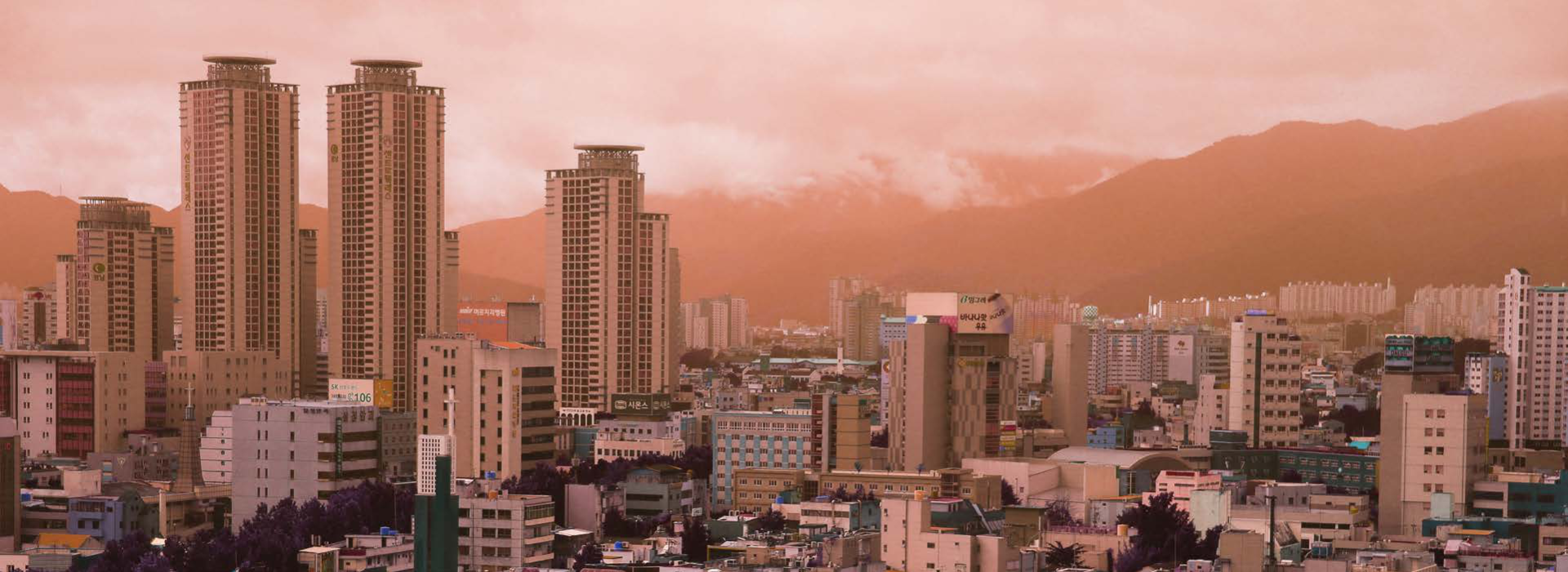About us
Urban development in different social and spatial contexts represents a major challenge - whether in municipal planning practice or in research and teaching at universities. It is not only due to global urbanization trends that cities today find themselves in international contexts and must develop a culture of global responsibility. The world's cities offer an extensive portfolio of differing problems and solutions that need to be explored, examined and evaluated.

With the fall semester our new collaborative project togehehr with our Ukrainian partners from Odessa, Lviv, Kharkiv and Kyiv has started. The Competence Network of Urban Transformation and Resilience offers joint courses for students of the participating universities in the field of urban planning and urban design, putting the questions of resilience and sustainable transformative planning into focus. The project builds upon the collaborative teaching activities that have been carried out from 2022 until 2025 within the Remote Lab of Urban Planning and Design and part of the programme „Ukraine digital". The project is funded by German Academic Exchange Service (DAAD). For more information see https://www.cnutr.com

The semester program for the upcoming semester is now online. Here you will find the different events and their contents. We are looking forward to exciting results.
More...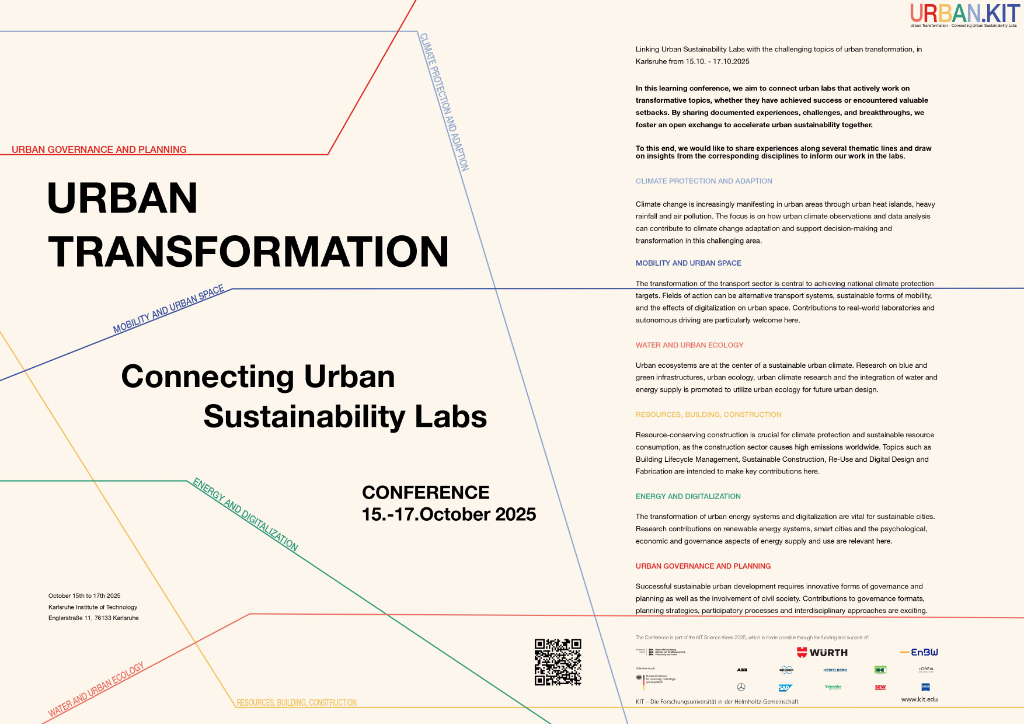
On October 15th - 17th the conference „Urban Transformation. Connecting Urban Sustainability Labs“ will take place in Karlsruhe. With 3 keynote speakers, representatives from 12 real world labs from all around the world and more than 30 workshops we will exchange experiences and discuss how to support transformative sustainable urban development. Last chance to register!
https://www.urban.kit.edu/registration.php
Link_more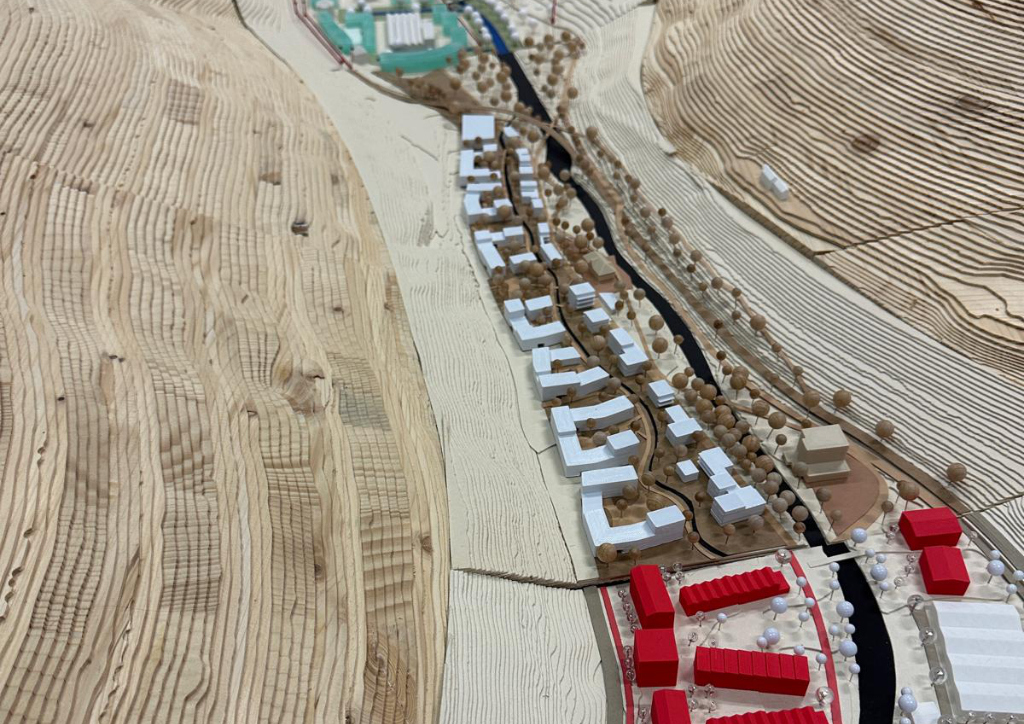
With the final review, the semester for our master's students is now also coming to an end. As part of the “Blue-Green Transformation” project, many exciting ideas for the future of the Spinning Mill Area in Ettlingen were developed. Thank you to the students for their many different designs.
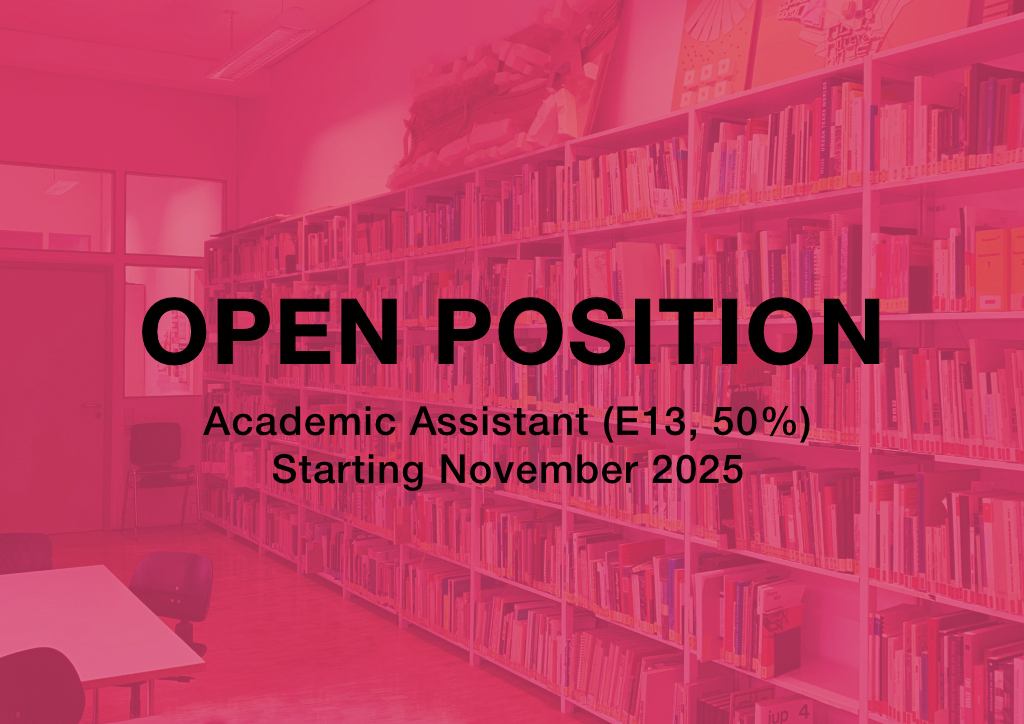
We are looking for a 50% academic assistant to start on November 1.
You have a university degree in architecture / urban planning / landscape architecture / sociology with clear links to urban planning, have at least two years of professional experience in urban development, above-average skills in urban design, experience in or strong motivation for academic work, and a willingness to actively participate in the professorship's research focus areas?
Then apply now digitally with a PDF (max. 10 MB) to Prof. Engel, email: barbara.engel@kit.edu.
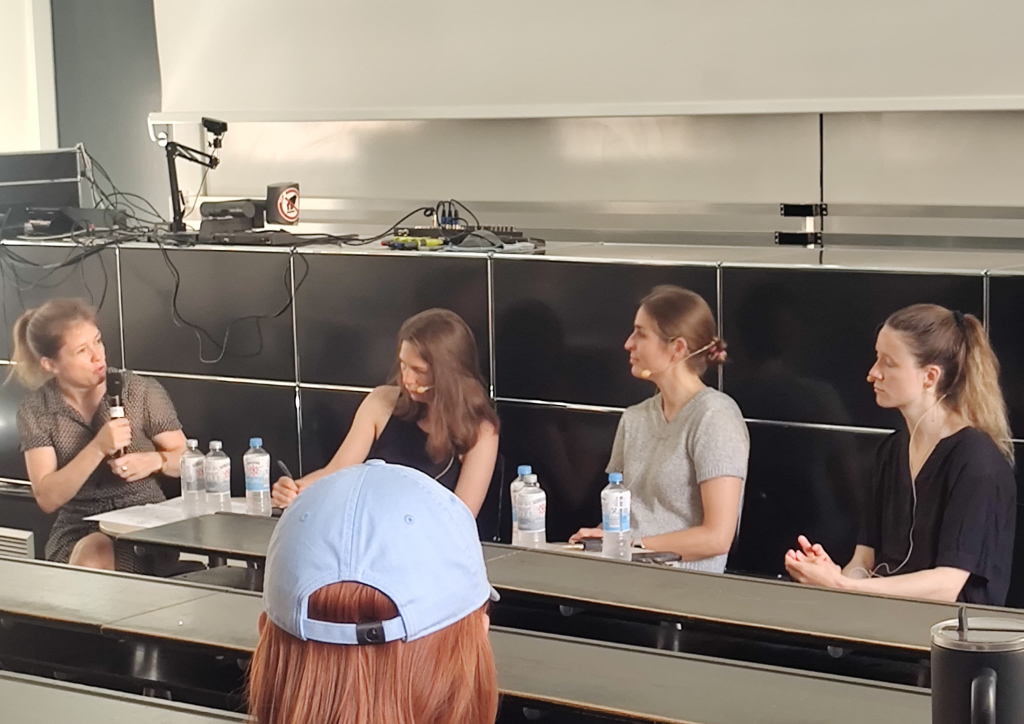
Together with Elena Boermann (Chair of Sustainable Construction), Oriana Kraemer (City of Karlsruhe), and Pia Thissen (berchtoldkrass), the discussion focused on topics related to urban development in Karlsruhe—what challenges are we facing, what has already been achieved, and where are the obstacles?
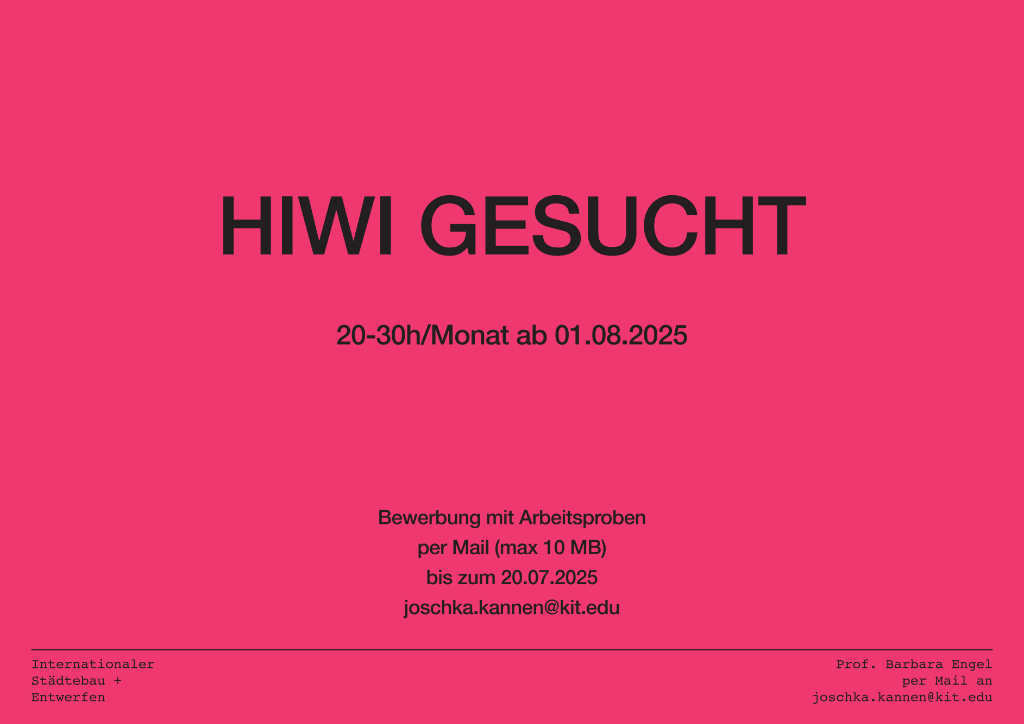
If you are interested, send an email to joschka.kannen@kit.edu.
Link_more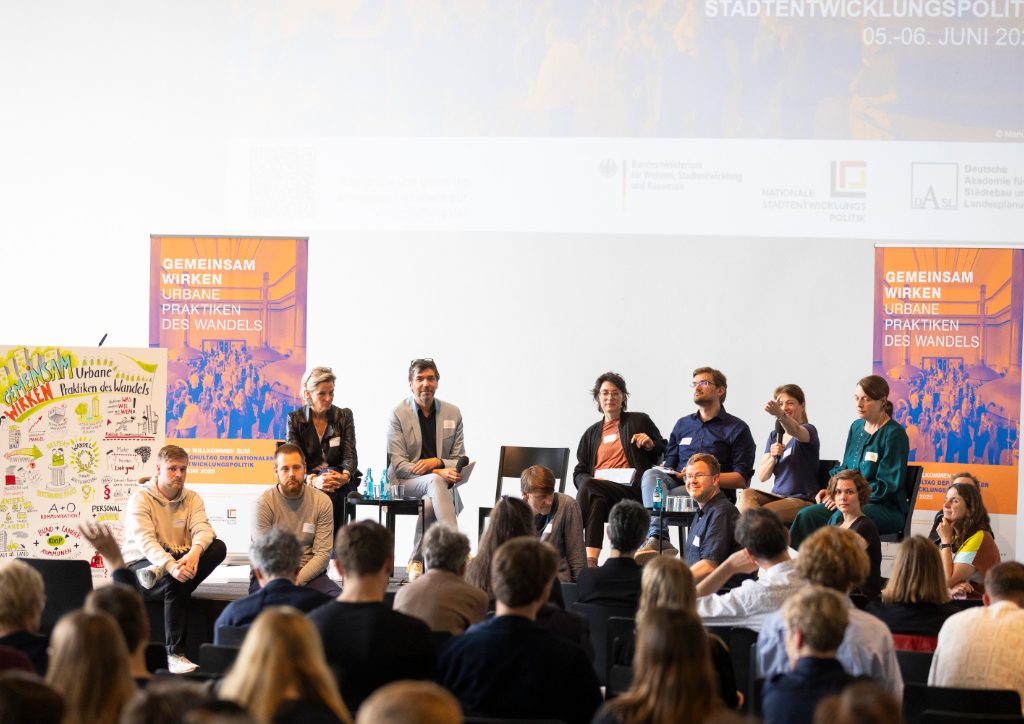
On June 5–6, 2025, students from KIT took part in the 9th University Day of the National Urban Development Policy in Berlin. Under the theme “Acting Together – Urban Practices of Change”, experts from planning, politics, research, and civil society discussed approaches to sustainable and transformative urban development.
Workshops focused on linking knowledge, political action, and civic engagement. A policy paper with recommendations will be presented in September at the National Urban Development Congress in Rostock.
More...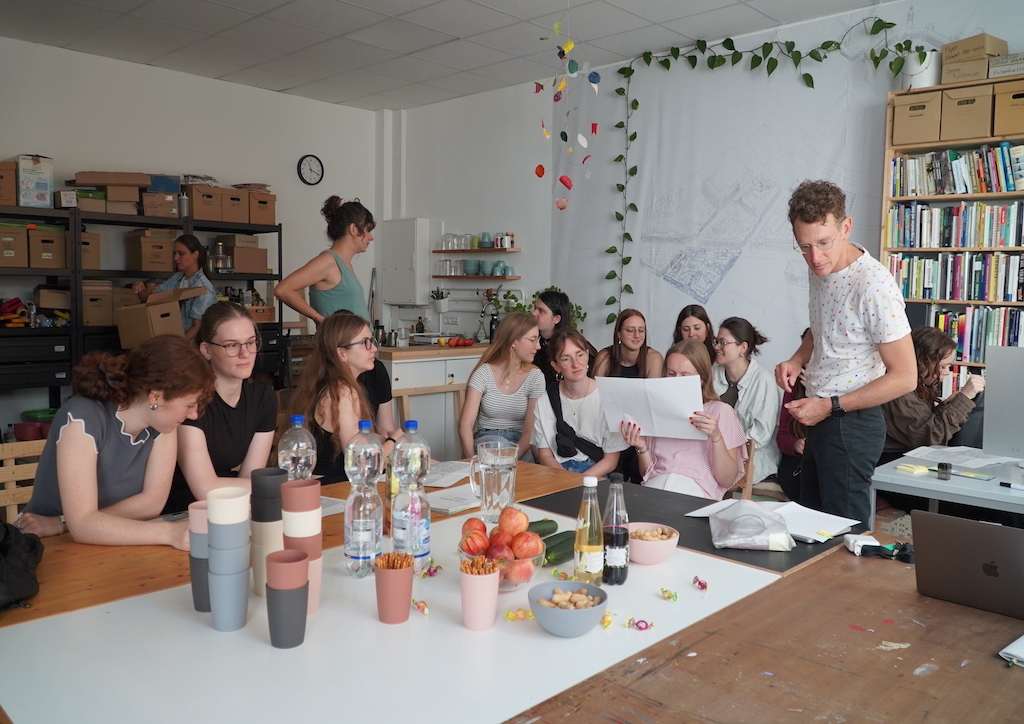
We are thrilled to welcome our students to seminar week “The Edible Unseen” and want to extend our gratitude to our partners from Junge Architektur Karlsruhe (https://www.junge-architektur.de/) and Urbane Gärten (https://urbanegaerten.org/) for an exciting kickoff meeting. We look forward to exploring some of Karlsruhe’s “backsides” and discussing the students’ intervention suggestions to transform those hidden spaces into visible, edible open areas. The seminar results will be presented by the students on Friday, the 13th, at 3:00 PM at the Urbane Gärten Studio on Kaiserstraße 209 (am Waldhof).
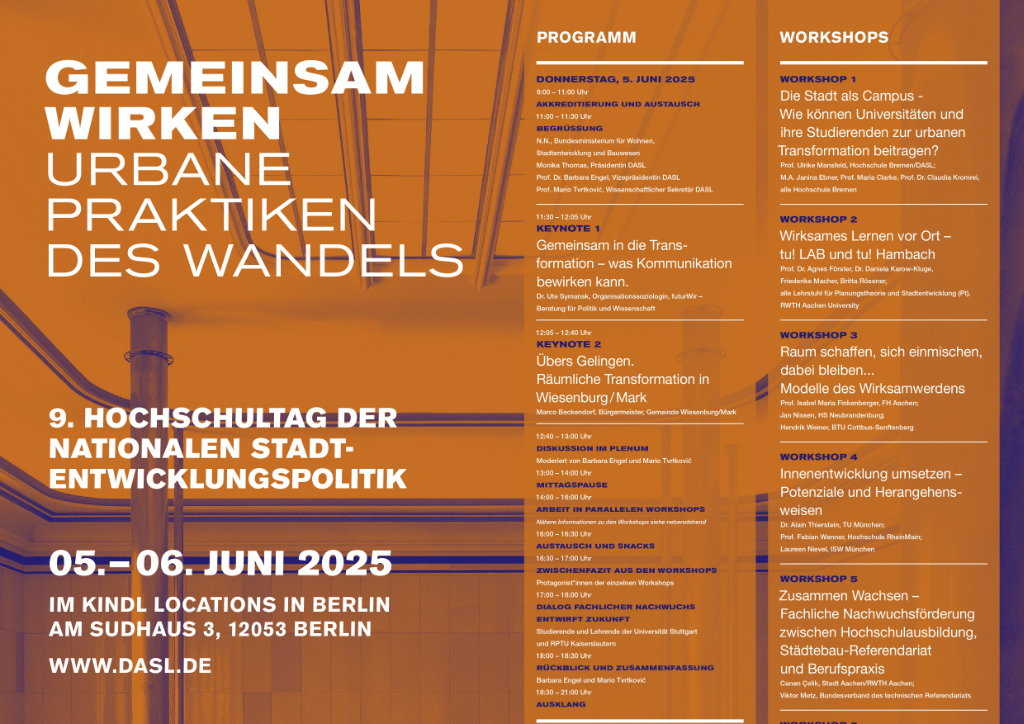
On June 5–6, 2025, the 9th Hochschultag of the National Urban Development Policy will take place in Berlin. Under the motto “Acting Together – Urban Practices of Transformation,” students, researchers, and practitioners will engage in workshops and discussions on the role of academia in shaping future cities.
Link_more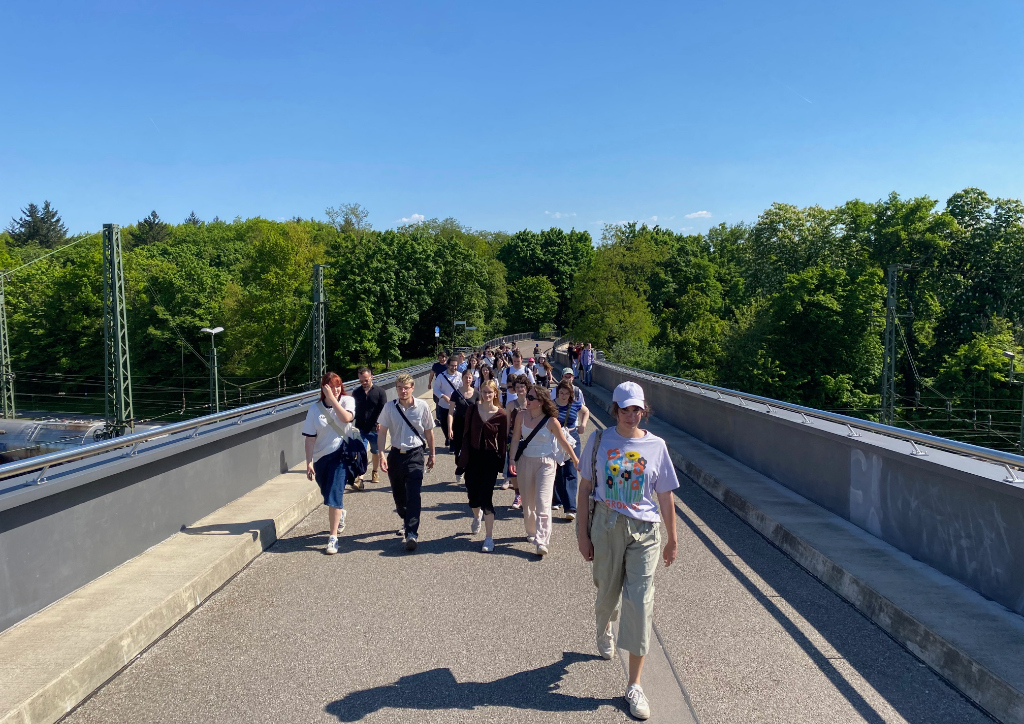
The BA4 students started their first urban planning design studio, “Transformation and Urban Renewal in Knielingen, Karlsruhe”, with two excursions to both the planning site and to some of Karlsruhe´s interesting buildings, housing projects, public spaces, and green areas.
We wish them luck for the upcoming semester and look forward to discussing their design ideas and development concepts for the eastern part of Knielingen.
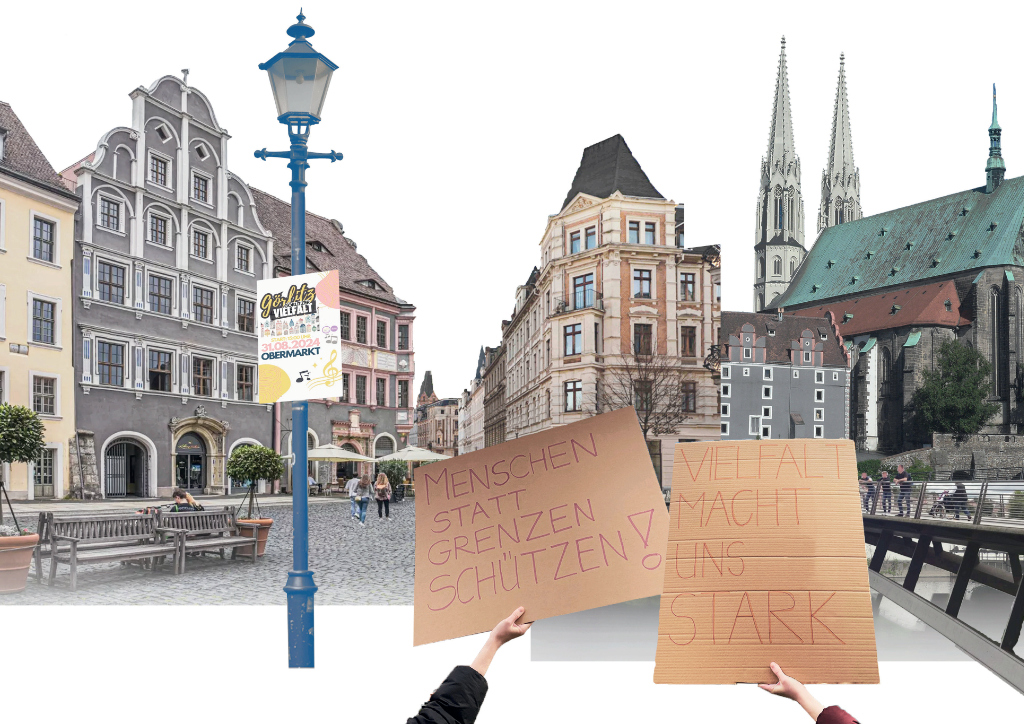
We congratulate our graduates on successfully completing their master’s degrees. All projects were addressing relevant topics in urban development, such as the renewal of the city centre in Pforzheim (Aurélie Pha), the Ecological Transformation of Karlsruhe (Gorkem Yagmur Yuksel), the built heritage of the Olympic Games in Sarajevo (Karla Jukic), and developing spaces of integration for the arrival of refugees (Magdalena Hehnen) – well done! We wish them all the best for their future!
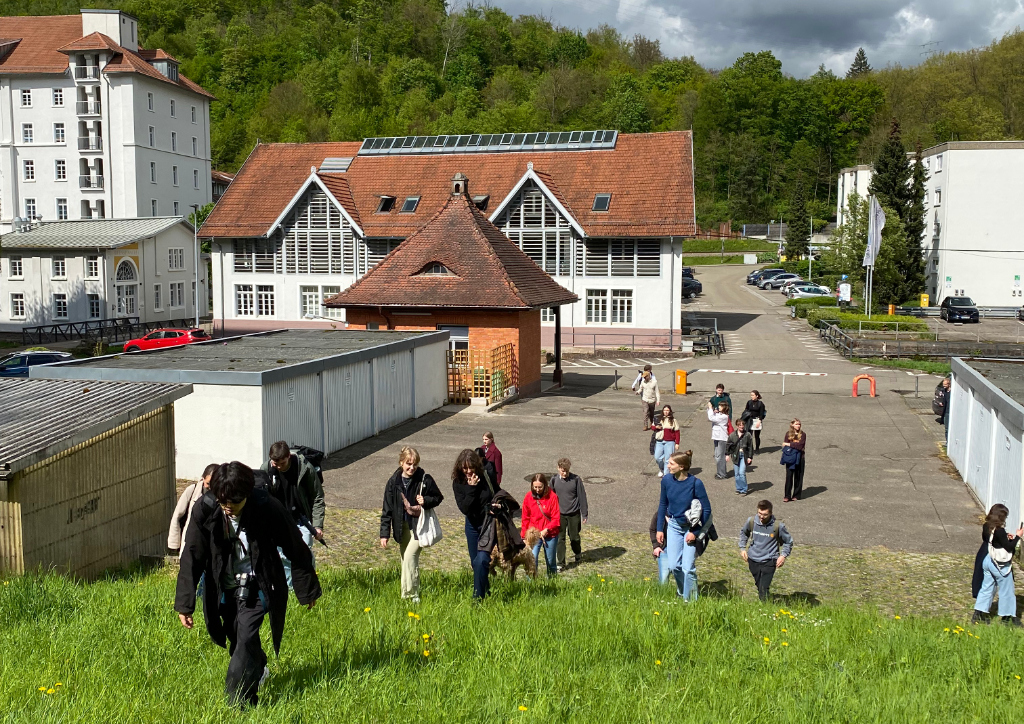
The master students of the design studio Blue-Green Transformation started the semester with a field trip to Ettlingen, exploring the potential of the Alb Valley and spinning mill area. During this semester, the students will work together with the Chair of Hydraulic Engineering and Water Resources.
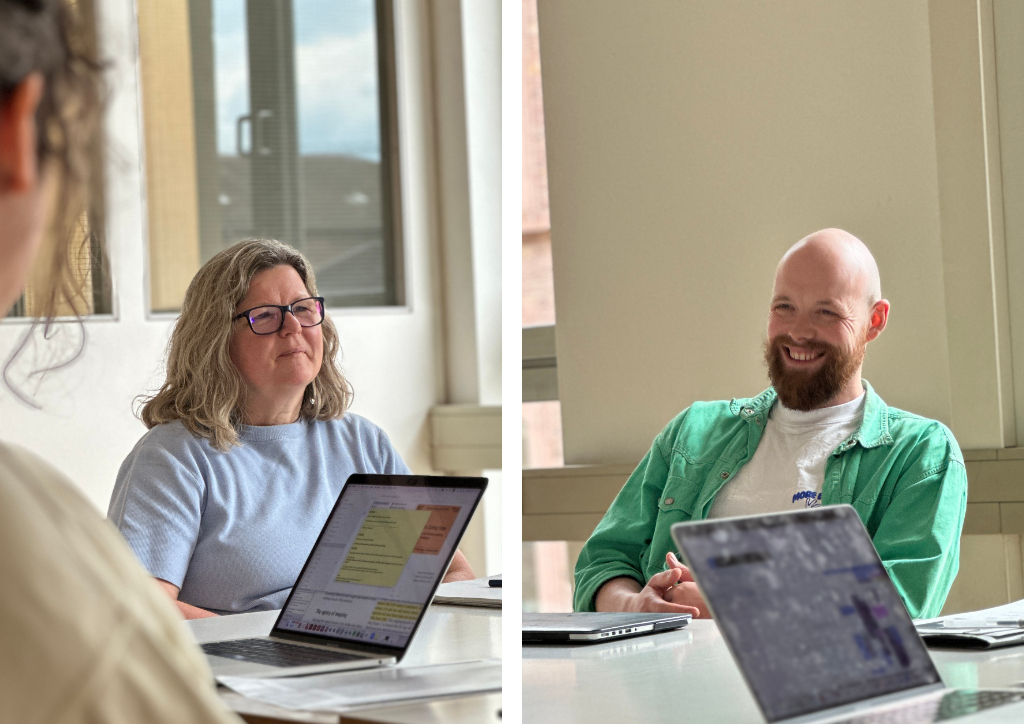
We are pleased to announce that our team at ISTB is complete! Susanne Rettmar as secretary and Johannes Hermann (former graduate from KIT!) as academic assistant have just started with the summer semester. Welcome and it’s great that you are with us!
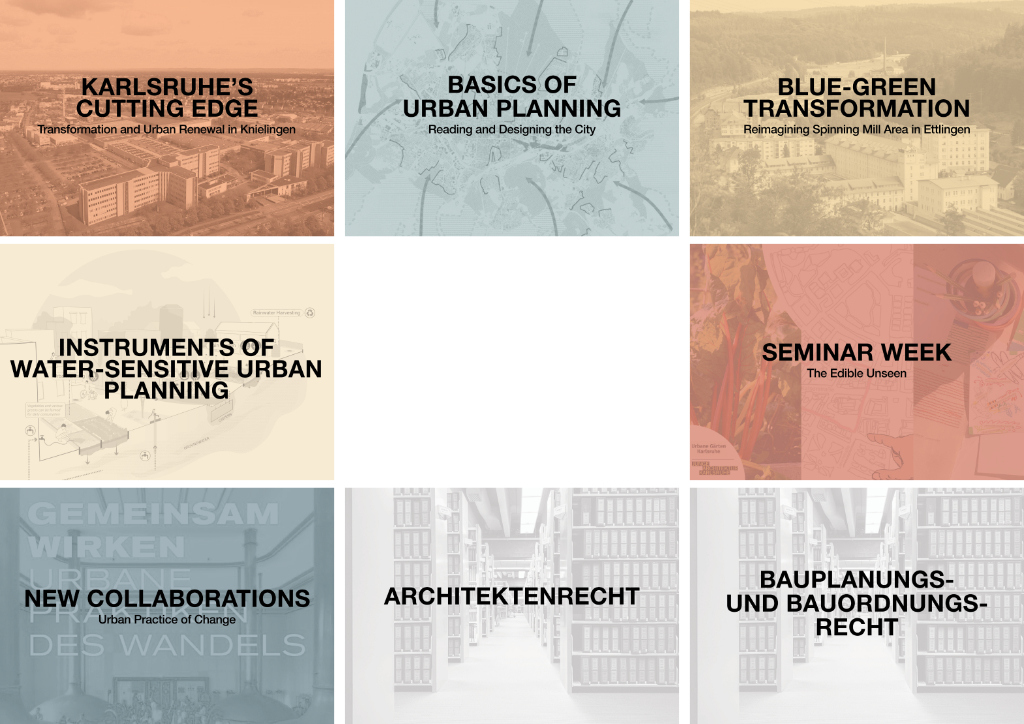
The courses for the upcoming semester are online as of today. Here you can view the scheduled events and find the link to the corresponding Ilias course content.
More...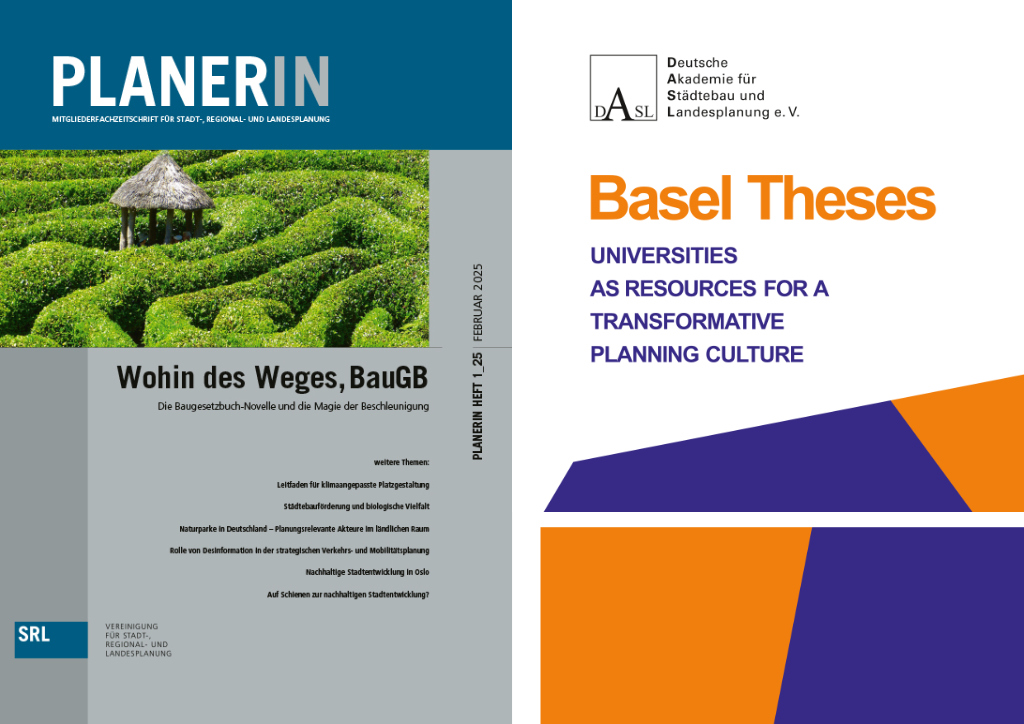
Universities as resources for a transformative planning culture. The "Basel Theses" from April 2024, emphasize the key role of universities in promoting a transformative planning culture. They call for interdisciplinary education for future planners, active involvement of universities in societal discourse, and stronger networking between research and practice. The goal is to shape cities and regions to be future-proof, resilient, and sustainable.
Read it now in the "PLanerIn" or under
https://dasl.de/basler-thesen-zum-8-hochschultag-der-nationalen-stadtentwicklungspolitik/
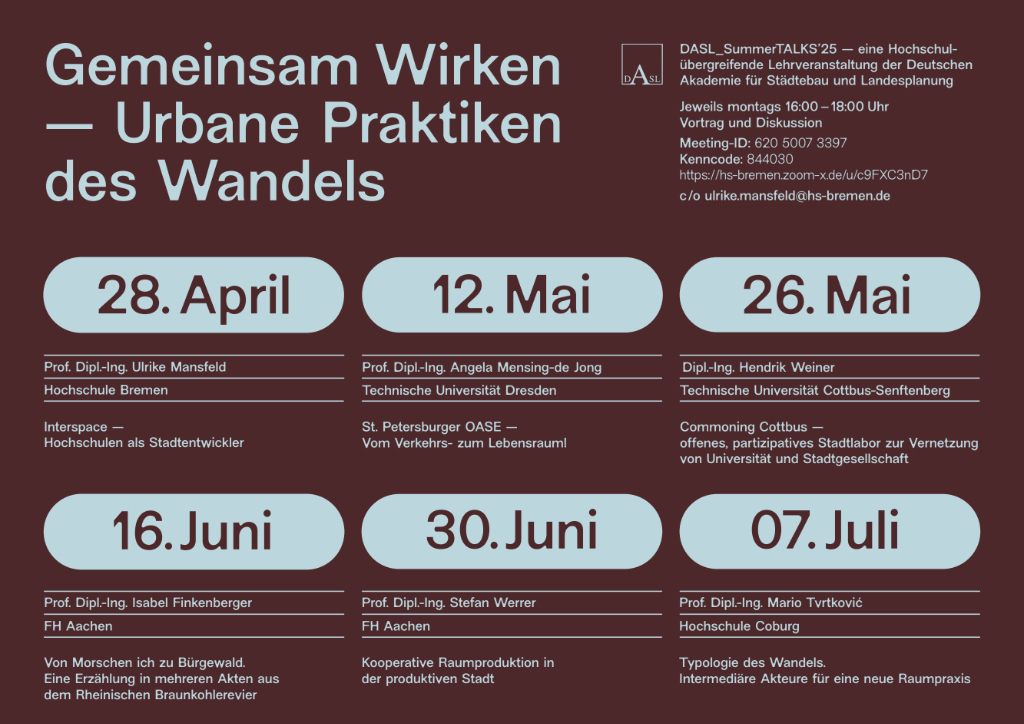
As a continuation of last semester's successful cross-university event, the lecture series “Gemeinsam Wirken - Urbane Praktiken des Wandels” will take place next summer. The lecture series is part of the research seminar offered at the professorship in the summer semester, but is open to anyone else interested in cities.
More...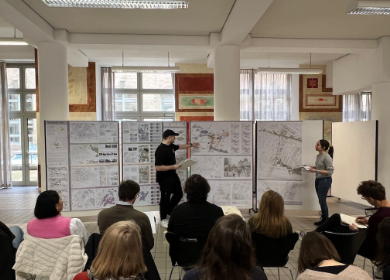
The final presentation on February 20, 2025, marked the end of an intense and insightful semester. The students presented their final designs, showcasing the diversity of their approaches to the complex challenges of the transformation of Matiçan. A particularly enriching aspect was the participation of guest professors Sharif Kahatt and Meti Spahiu. Sharif Kahatt, an architect and professor at the Pontificia Universidad Católica del Perú, contributed his expertise in sustainable urban development. Meti Spahiu, an experienced urban planner from Kosovo, enriched the discussions with valuable insights into local transformation processes. Their feedback and perspectives gave the students new insights and comprehensive feedback on their projects.

The final presentation on February 20, 2025, marked the end of an intense and insightful semester. The students presented their final designs, showcasing the diversity of their approaches to the complex challenges of the transformation of Matiçan. A particularly enriching aspect was the participation of guest professors Sharif Kahatt and Meti Spahiu. Sharif Kahatt, an architect and professor at the Pontificia Universidad Católica del Perú, contributed his expertise in sustainable urban development. Meti Spahiu, an experienced urban planner from Kosovo, enriched the discussions with valuable insights into local transformation processes. Their feedback and perspectives gave the students new insights and comprehensive feedback on their projects.
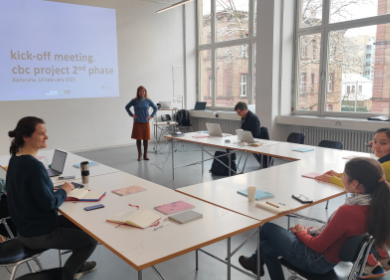
On February 14th, the kick-off meeting for the second phase of the Cities.Building.Culture project took place in Karlsruhe. We were delighted to welcome colleagues from GWZO Leipzig and RWTH Aachen, as well as a special guest lecturer, Prof. Thomas Will.
Under the title “The Residential Built Heritage of the Soviet Union in Times of Multiple Crises,” the research consortium will continue its work for another three years. The meeting concluded with a walk through the transformed Alter Schlachthof area in Karlsruhe.
More about the project: https://cities-building-culture.com
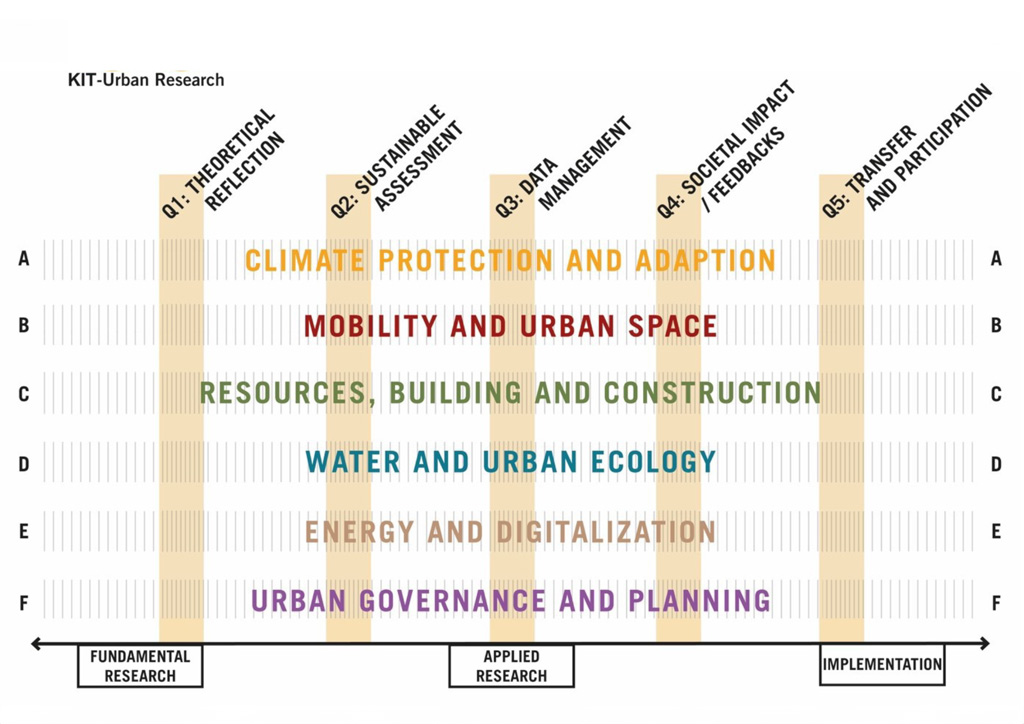
The conference will take place in Karlsruhe from October 15-17th, 2025, as part of the 200th anniversary celebrations of the KIT and the Science Week "City of the Future", is aimed at both academics and practitioners. If you are interested, please submit your abstract by February 17th.
Link_more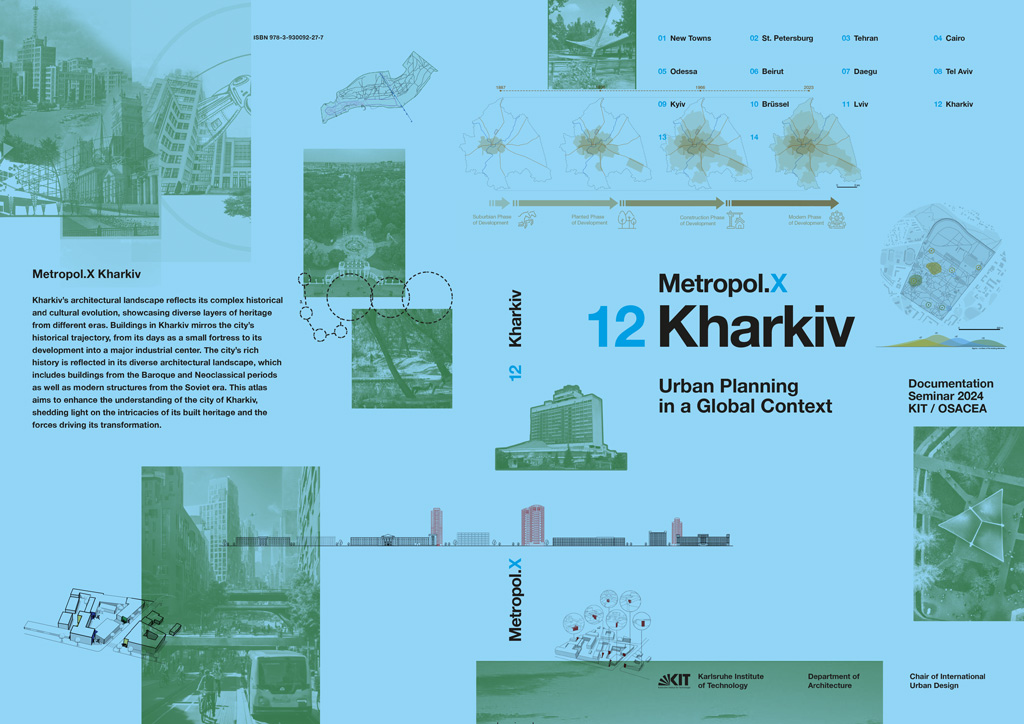
The results of the seminar Metropol.x_Kharkiv present different facets of the Ukrainian city, right at the border with Russia. It is the second-largest city in Ukraine with a population of about two million, before Russia's war of aggression broke out. As one of the most important scientific, industrial, trade, and transportation centers of Ukraine, Kharkiv has played a significant role in the nation's history. The booklet is available at the chair.
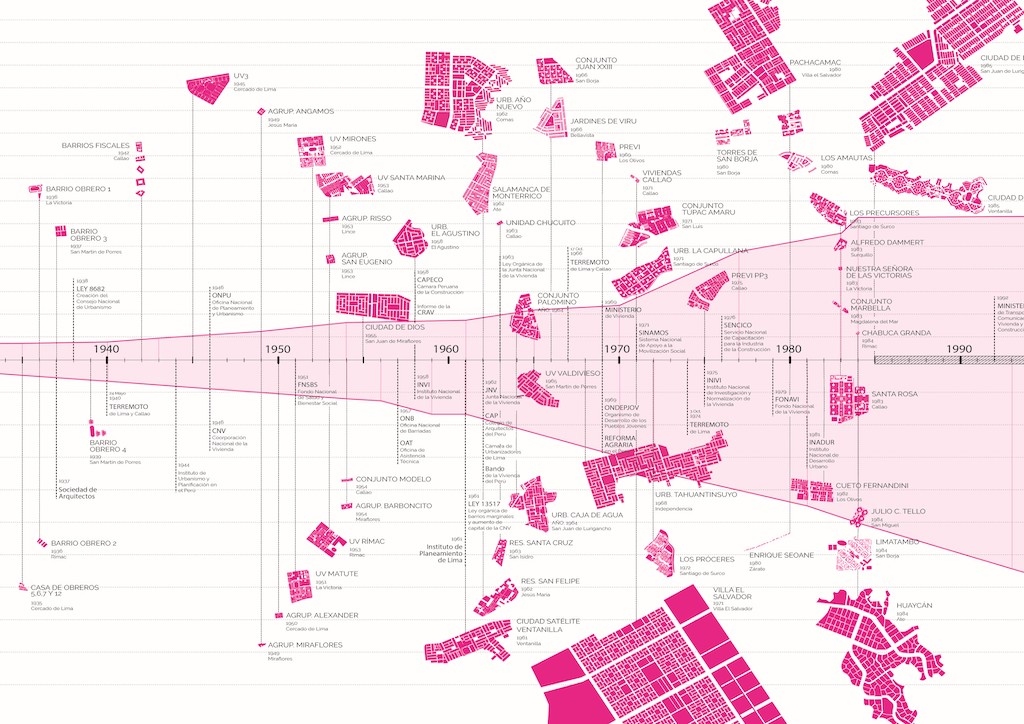
Guest Lecture: Sharif S. Kahatt
Thursday, January 23, 17:30 at "Grüne Grotte", KIT, Faculty of Architecture, Englerstr. 7, Karlsruhe, Professorship of Building and Architectural History / Professorship of International Urbanism.
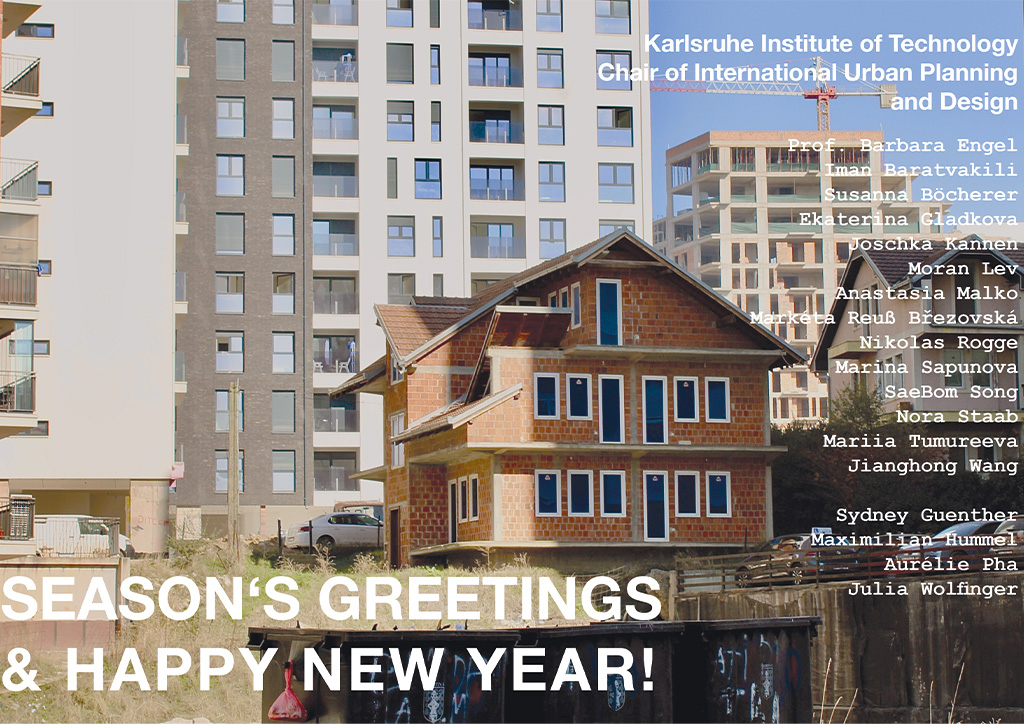
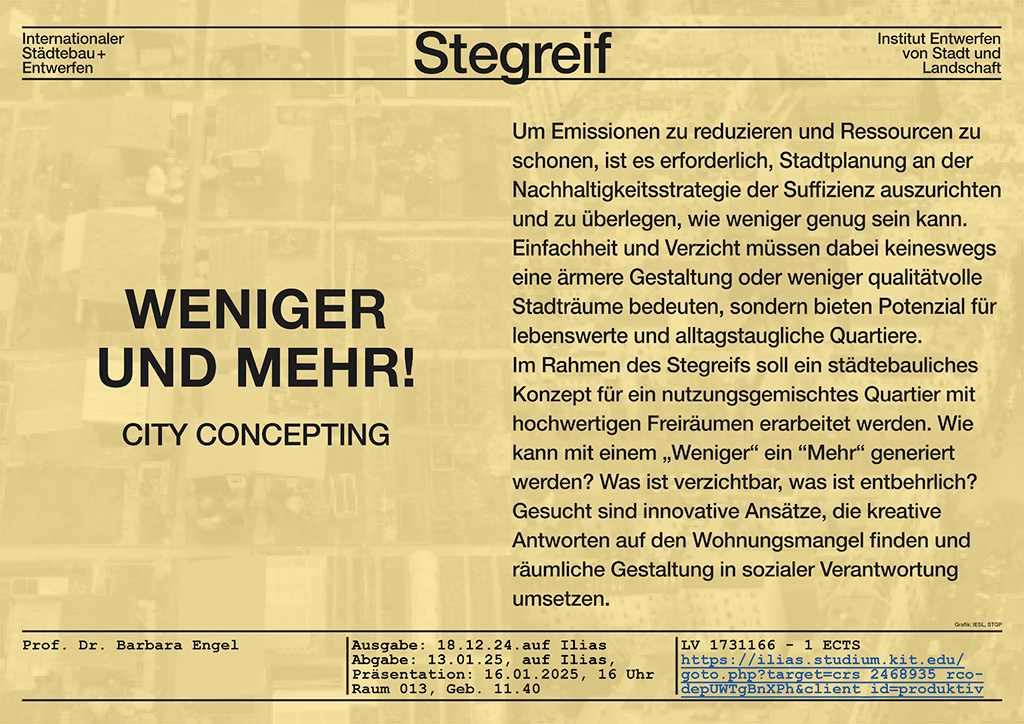
In order to reduce emissions and conserve resources, it is necessary to align urban planning with the sustainability strategy of sufficiency and to consider how less can be enough. Simplicity and renunciation do not necessarily mean a poorer design or less high-quality urban spaces, but rather offer potential for livable neighborhoods that are suitable for everyday use. As part of the Stegreif project, an urban development concept for a mixed-use district with high-quality open spaces is to be developed.
Link_more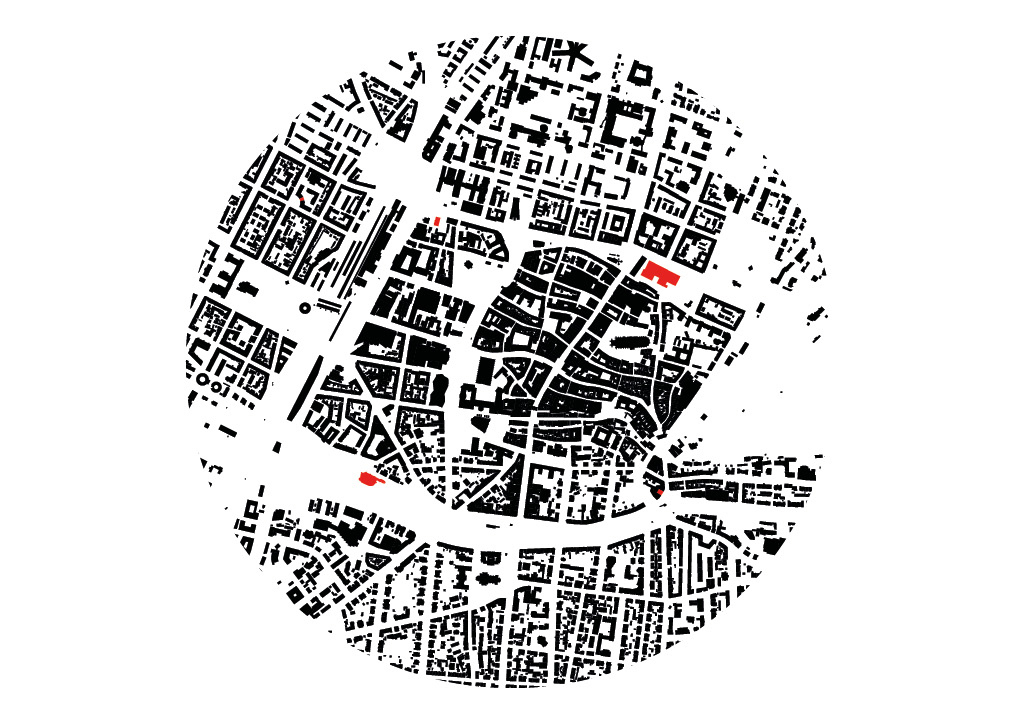
What does the future of Freiburg's city center look like? How can it be better connected with the neighboring urban spaces - spatially and functionally? What measures can be taken to adapt the city center to the climate transition? Students from the Chair of International Urban Planning and Design and the Institute of Transportation addressed these questions in the summer semester 2024. In cooperation with the city of Freiburg, they developed forward-looking and experimental design approaches with new programmatic and traffic planning perspectives.
Link_more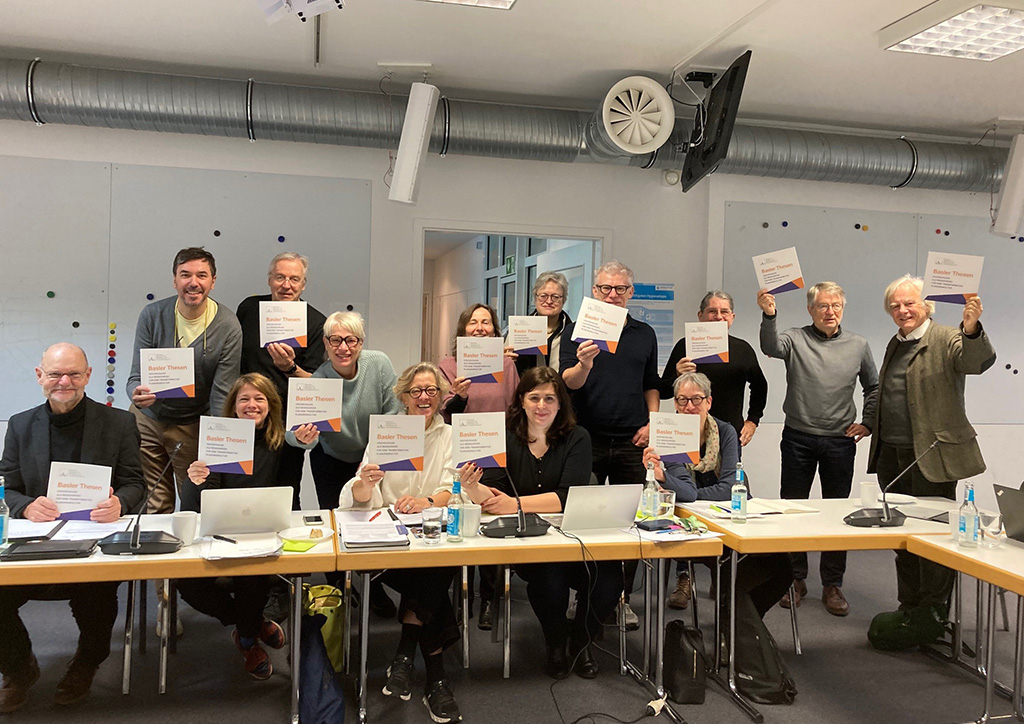
How can we make better use of universities as resources for a transformative planning culture?
This was the subject of discussions at a conference in Basel this spring, as part and continuation of the 8th University Day - the result is the publication of the Basel Theses, which set out approaches for teaching and research. The print version is now available at the Chair.
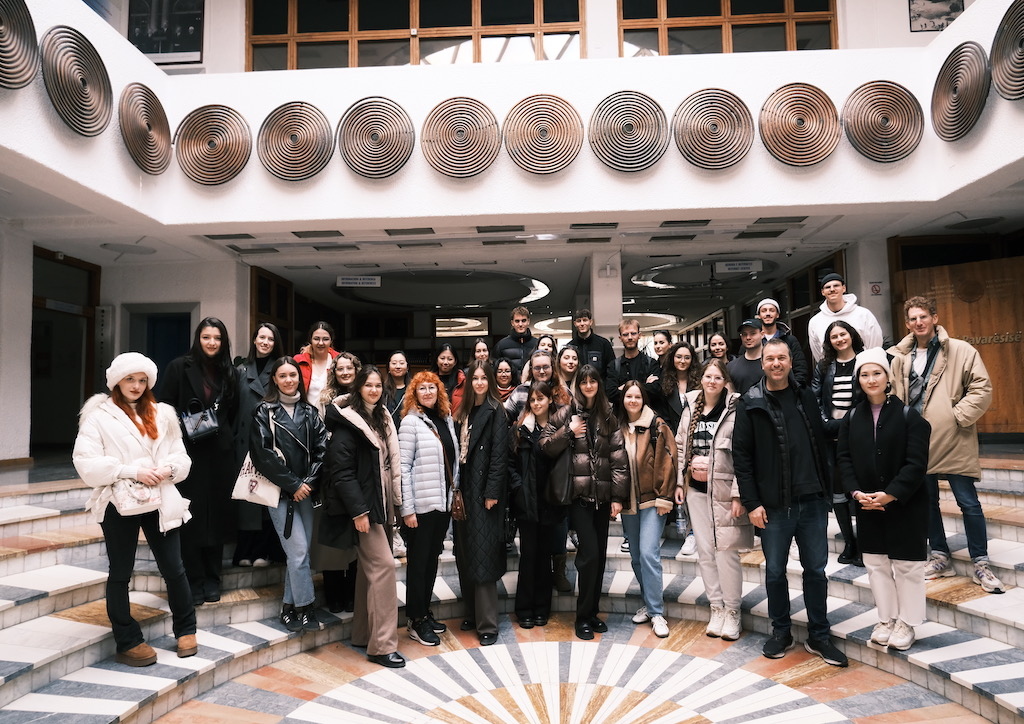
The master students of the design studio Transform for Resilience: Civic Infrastructure in Matiçan, Prishtina, are currently participating in an urban design workshop in Kosovo with students from Prishtina and Odessa. During the intense one-week workshop and excursion, they will conduct on-site analysis and work on preliminary design concepts for the district Matiçan, which has been undergoing rapid and uncontrolled development in the last 15 years.
Malik Al Bosta received a grant from the Ruth and Erich Rossmann Foundation for his master's thesis "Informal Urbanism", which he completed in SS 2023. The prize supports outstanding graduates for further study or participation in a workshop abroad. Malik will attend a summer school at the AA School of Architecture, UK. We warmly congratulate!
The book presents 13 'district stories' from seven post-Soviet countries, written by experts from a variety of disciplines, including architecture, urban and regional planning, public policy and social sciences, and human geography. The authors take a critical look at various aspects and discuss the housing heritage from different perspectives. They present observations of spatial, social, and functional transformations as well as of the formal and informal frameworks, planning strategies, and concepts that lie behind the physical development.
Link_more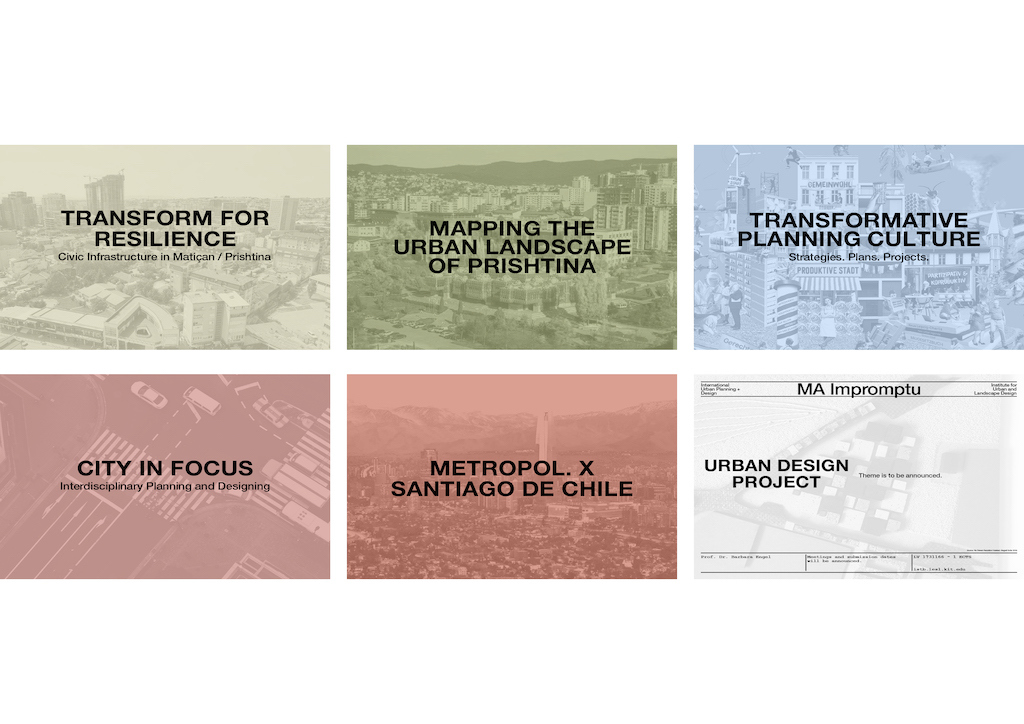
As of today, the courses for the upcoming semester are online. Here, you can view the scheduled events and find the link to the corresponding ILIAS course. We are looking forward to meeting you at the one or other class and wish you a good start in the new academic year!
More...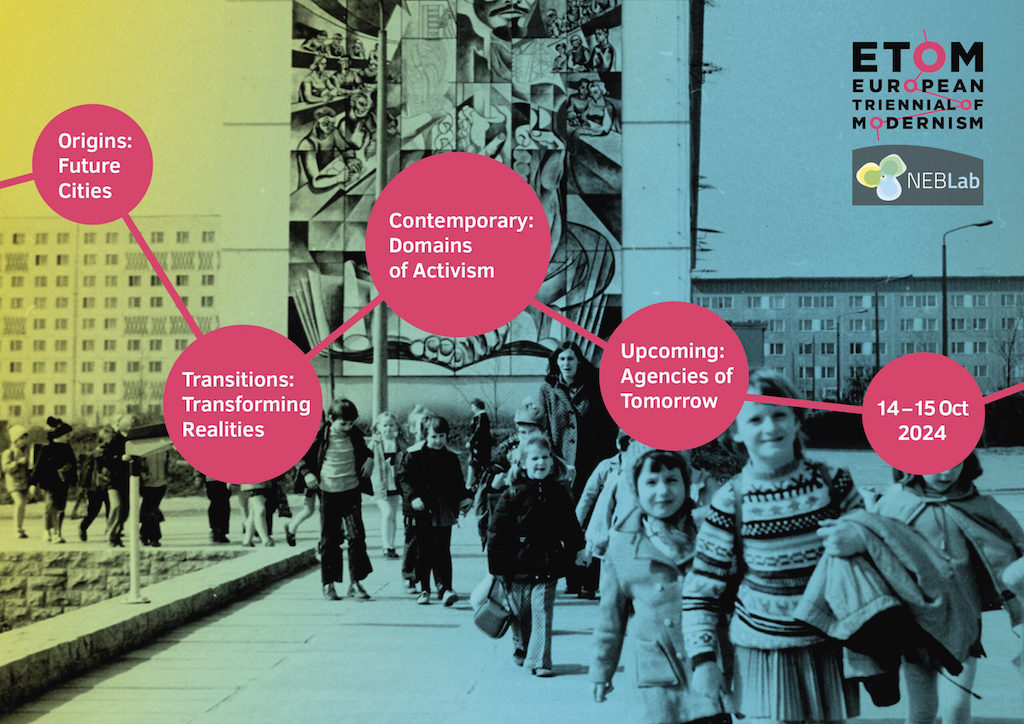
On the occasion of "60 years of Halle-Neustadt," an ETOM NEB Lab Milestone-Conference in the framework of the "New European Bauhaus" with a focus on Modern Housing postwar in Central Europe took place in Halle on October 14/15. The chair ISTB contributed wiht a report, presenting nsights from its currently running living lab in Tbilisi.
More...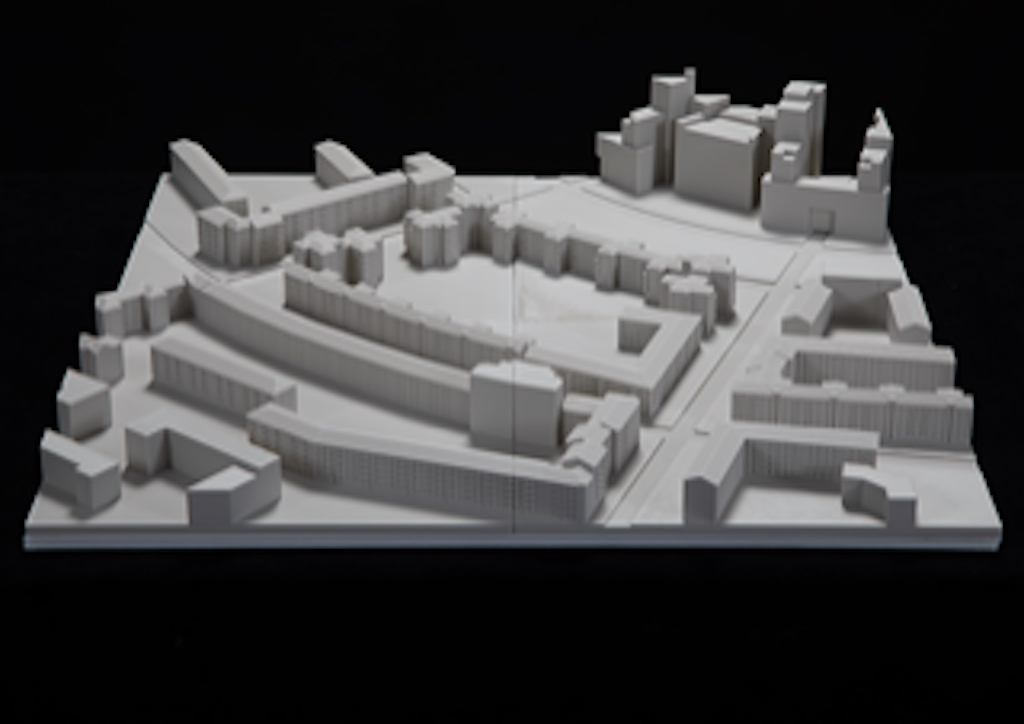
From October 8th to November 12th, the exhibition "Residential Heritage: Soviet Morphotypes and Typologies" can be seen at BHROX bauhaus reuse, Ernst-Reuter-Platz in Berlin. The exhibition, which was developed as part of the research project "cities.building.culture", shows the Soviet residential heritage in its various urban and typological forms - from 12 districts in Armenia, Belarus, Georgia, Kazakhstan, Latvia, Lithuania, Russia, Uzbekistan and Ukraine.
More...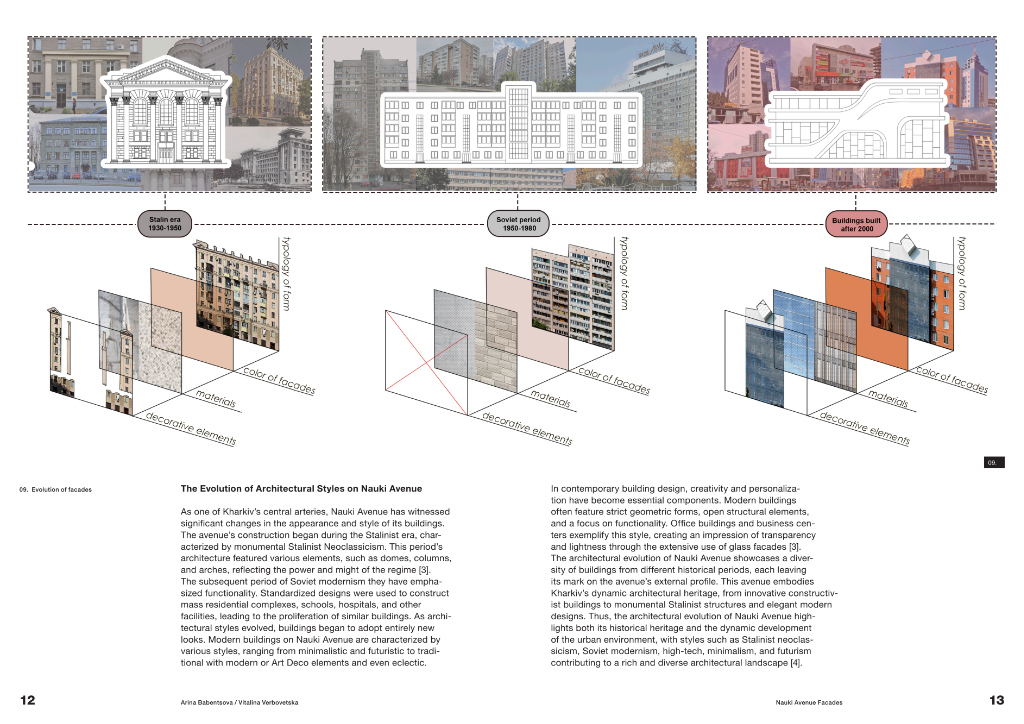
We are welcoming our new partners at the Remote Lab of Urban Planning - the National Aviation University, Lviv National Polytechnic University, O. M. Beketov National University of Urban Economy and Taras Shevchenko National University of Kyiv! The project, funded by DAAD, was launched in 2022 as cooperation between Karlsruhe Institute of Technology and Odessa State Academy of Civil Engineering and Architecture. This online lab offers students from Ukraine a unique educational experience - in the upcoming fall semester with a focus on urban resilience and urban transformation in Eastern Europe.
Link_more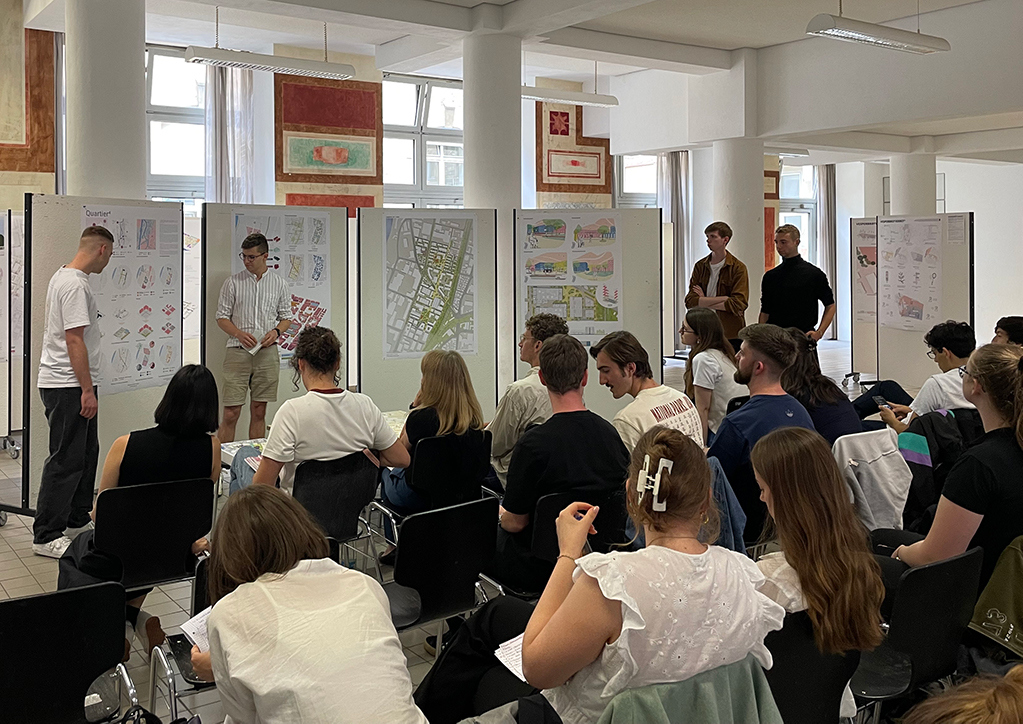
Congratulations on the successful presentation of the BA 4 Studio Context. Our thanks for the support as guest critic go to SaeBom Song, who enriched the discussion with interesting perspectives. The students' projects offer innovative design concepts to three sites in Heilbronn dealing with the challenges of planning within existing urban textures.
More...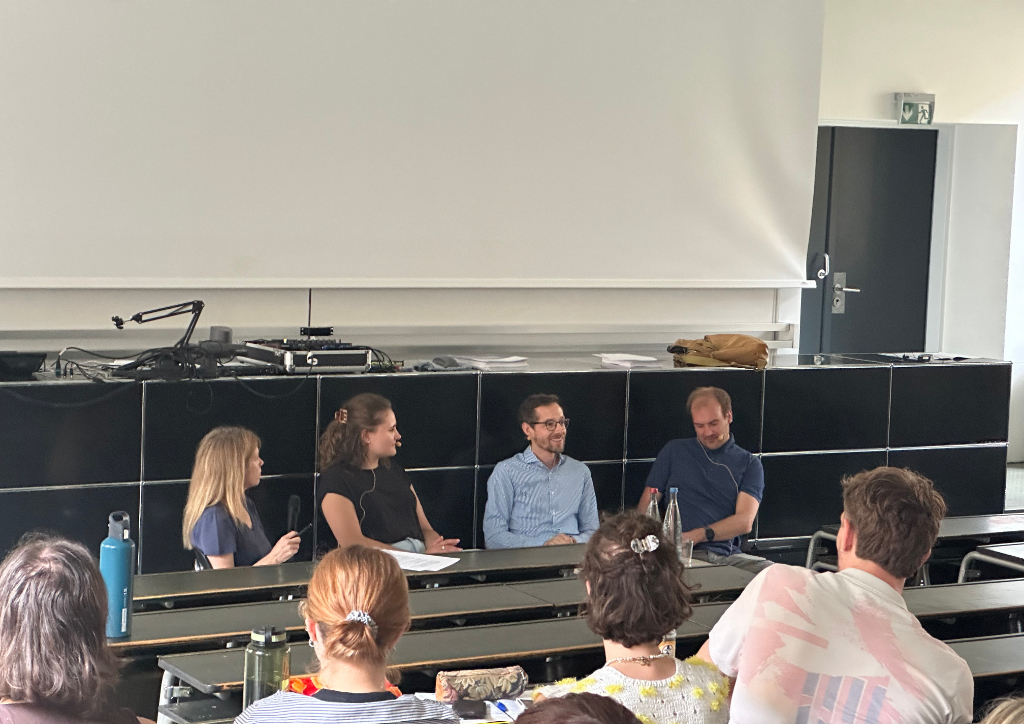
As part of the lecture "Reading the city. Shaping the city", guests were invited to a round table discussion at the end of the semester. Nadine Georgi from Planschmiede Hansert & Partner, Markus Kaltenbach from berchtoldkrass space & options and Felix Maier from the Regionalverband Mittlerer Oberrhein discussed the current challenges in urban planning. They provided valuable insights into everyday planning from very different perspectives - thank you very much!
We are happy and proud to announce that our application "cities. building. culture. The Residential Heritage of the Soviet Union in Times of Multiple Crises" was accepted by the Federal Ministry of Education and Research! Together with GVZO Leipzig and RWTH Aachen University and our international partners we will develop approaches for a resilient, sustainable urban development in Ukraine, the Caucasus and the Baltic States - from October 2024 onwards for the duration of 3 years.
The executive board of the German Academy for Urban Development and Regional Planning (DASL) met in Karlsruhe on June 14th and 15th. The agenda included the exchange of information about the activities of the local groups and institutes as well as discussion of the further development of the DASL, including scientific orientation and internationalization. The meeting was rounded off with a walk around the city of Karlsruhe.
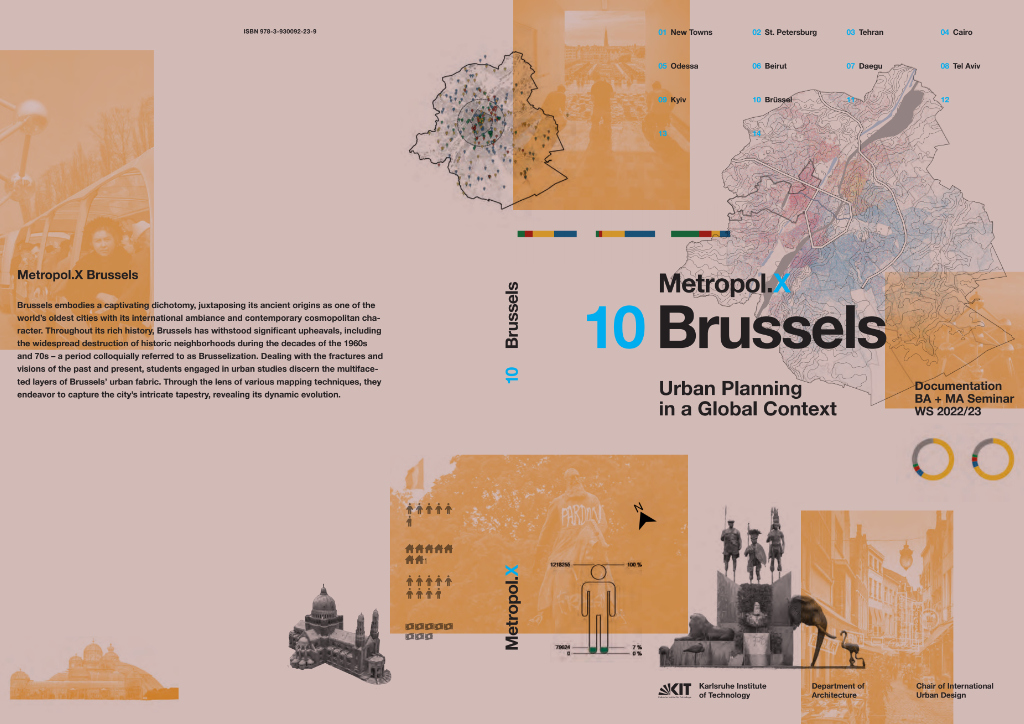
The results of the seminar Metropol.x_Brussels present different facets of the Belgium capital. Causes and symptoms of segregation in Molenbeek, the importance of the Expo on the transportation infrastructure and the food culture are only some of the various topics that are discussed in individual maps, elaborated by the students. The booklet is available at the chair.
Link_more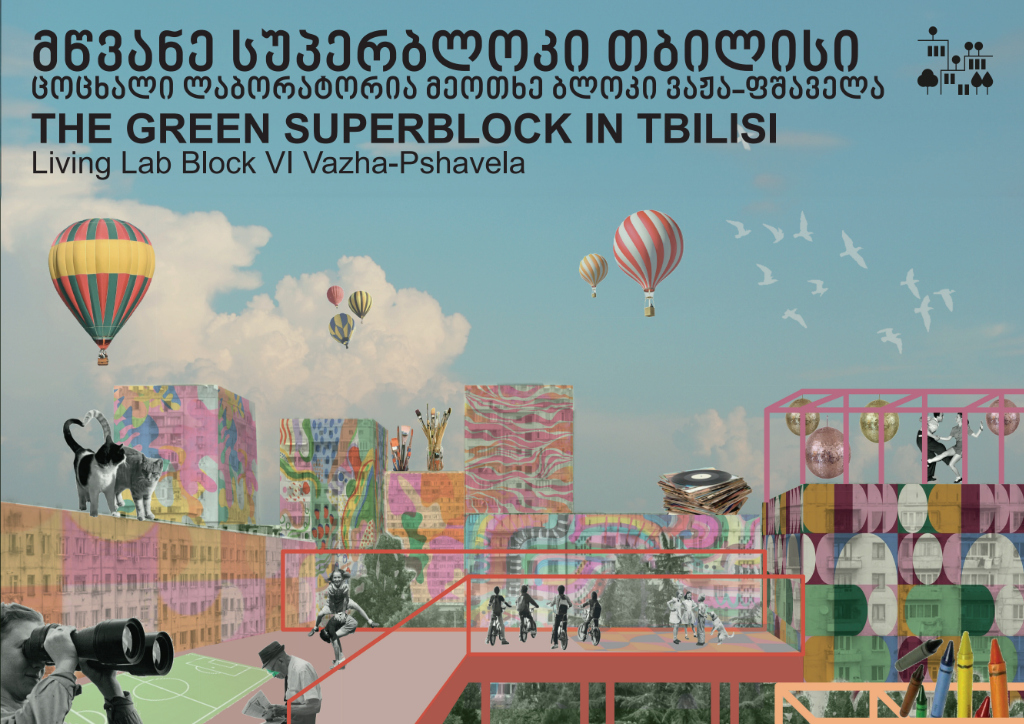
On May 25th our Living Lab will open in Tbilisi. Together with our partners, Ilia State University from Tbilisi and Odessa State Academy of Civil Engineering and Architecture we will establish an experimental dialogue in order to discuss the possibilities how to improve the living environment in the neighborhood of the Vazha-Pshavela Block VI.
For more information visit www.greensuperblock.com
Link_more
Over the next couple of weeks you will see some changes around the website as we are rearranging our content. While we are trying to make those changes unnoticeable in the backend, we want to apologize in advance if you have trouble finding what you are looking for. Thank you for your patience!
... more News
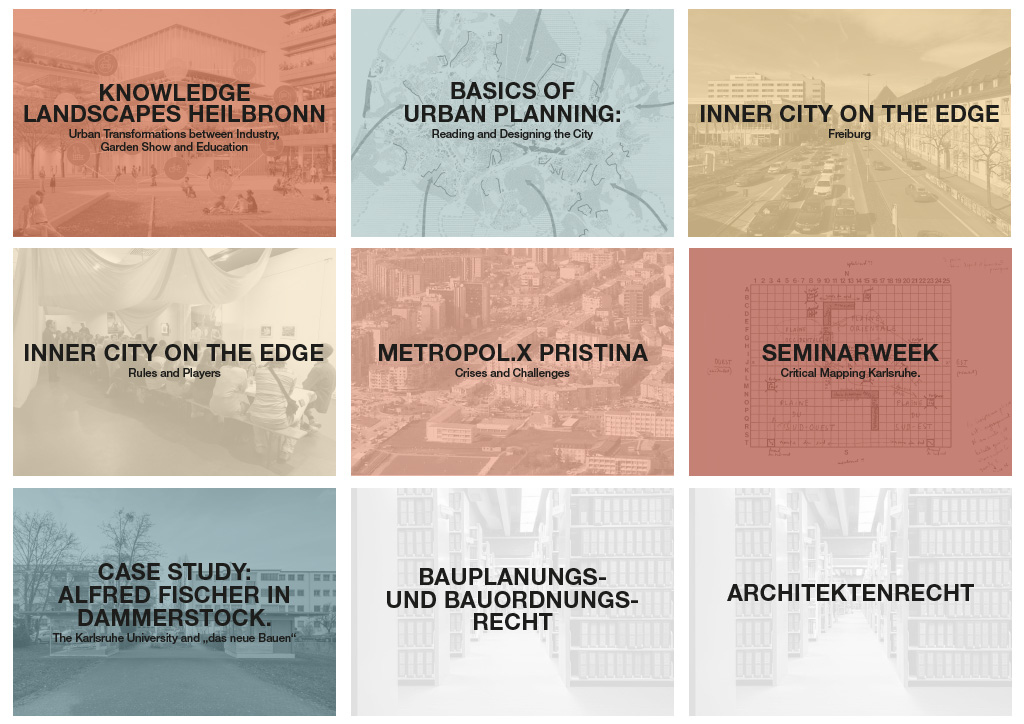
The courses for the upcoming semester are online as of today. Here you can view the scheduled events and find the link to the corresponding Ilias course content.
More...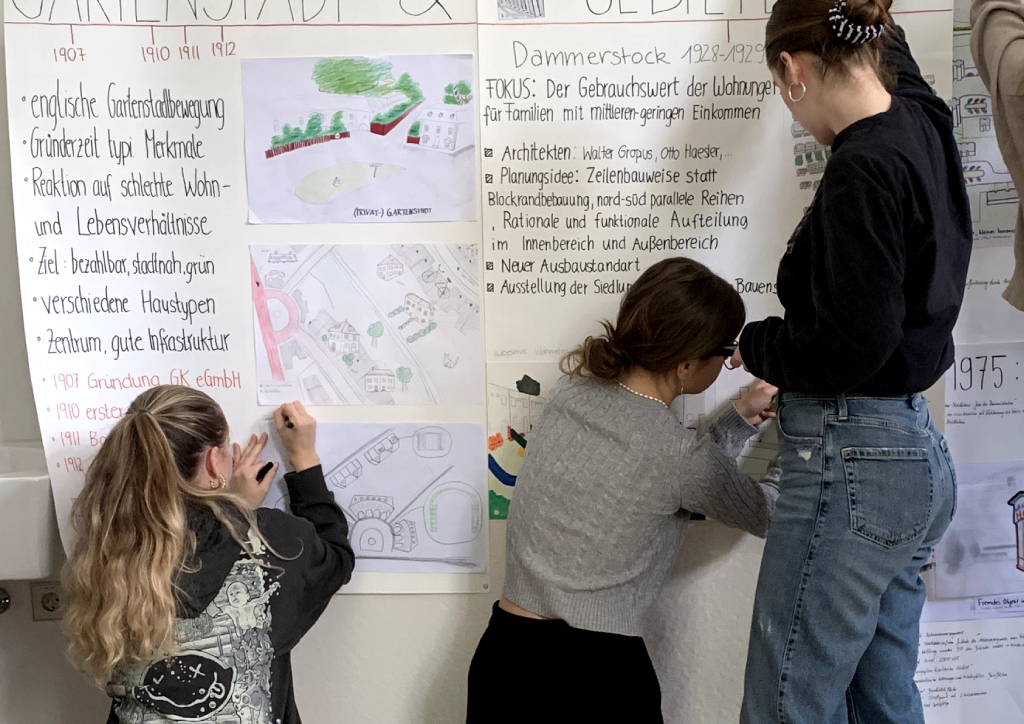
During the seminar week, special places in Karlsruhe were tracked down, their intrinsic logics perceived, researched and noted, and spatial, political, ephemeral, sometimes invisible phenomena highlighted. On daily field trips to different parts of the city we discovered the various characteristics and translated them into subjective mappings of the city while simultaneously discovering the cities built history.
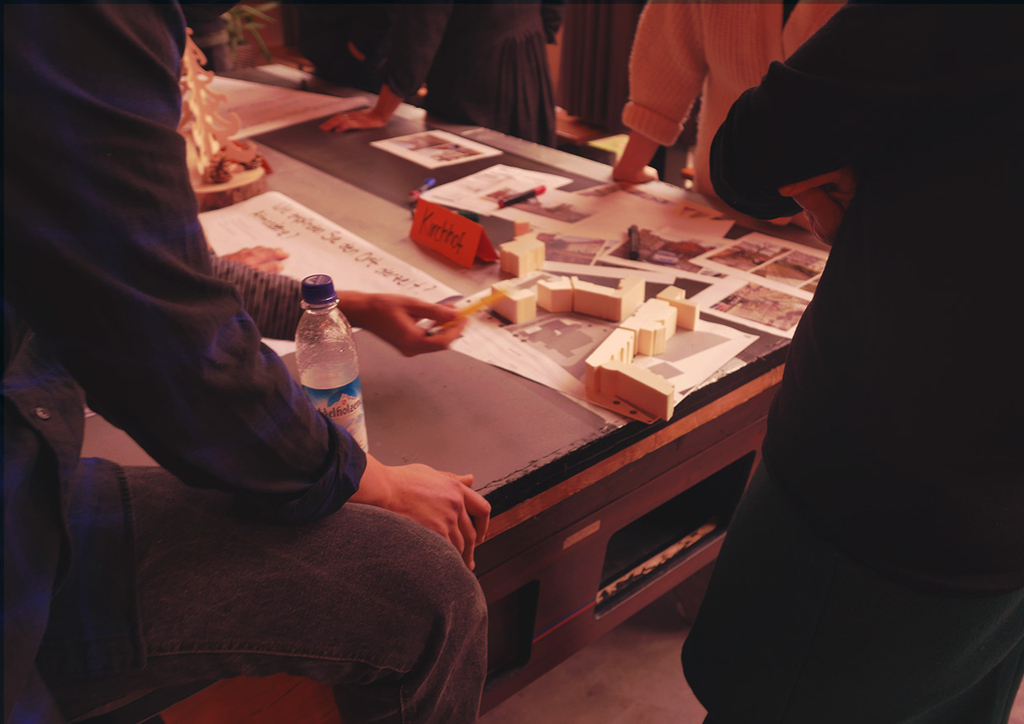
Welcome to the start of the summer semester 2024. We wish all students a good start to the new semester and look forward to your designs, new impulses and ideas as well as an exciting exchange with you!
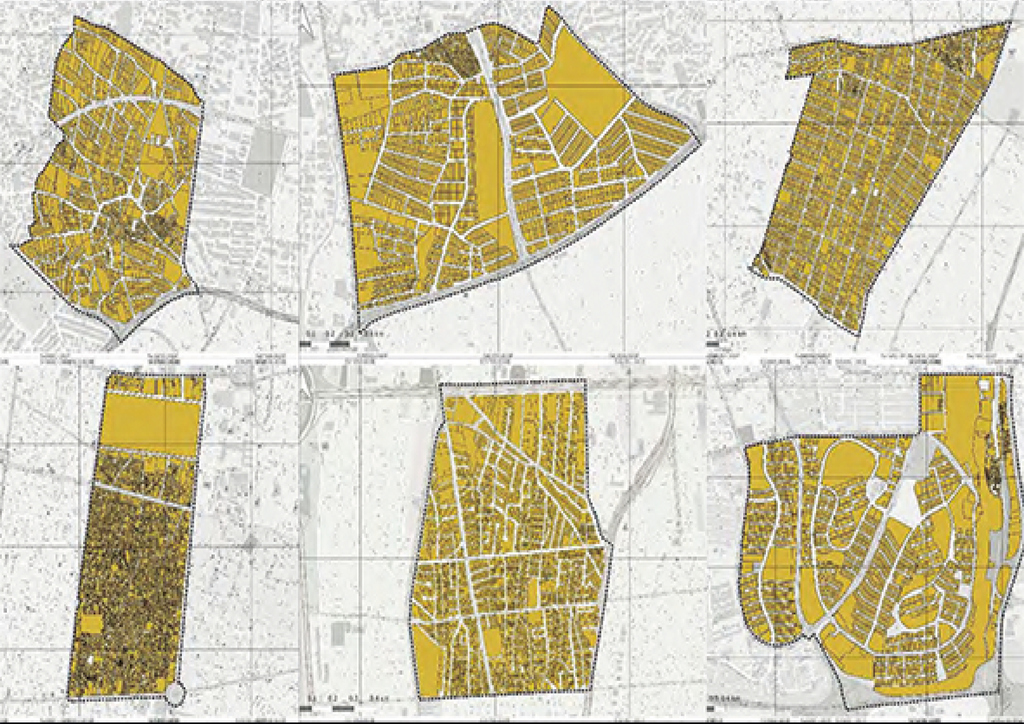
On June 6th Niku Khaleghi has very successfully presented her doctoral thesis "Assessing the Walkability of Tehran Organic Street Network Based on the Networks Form". The dissertation evaluates the diverse street patterns in the Iranian capital with regard to the cultural, spatial and geographical conditions specific characteristics that significantly influence walkability. The research addresses a worldwide relevant topic as important prerequisite for sustainable urban development, which in the context of Iran and many other cities in the Middle East still is in the shadow of the scientific debate and planning policies. Congratulations, Dr. Khaleghi!
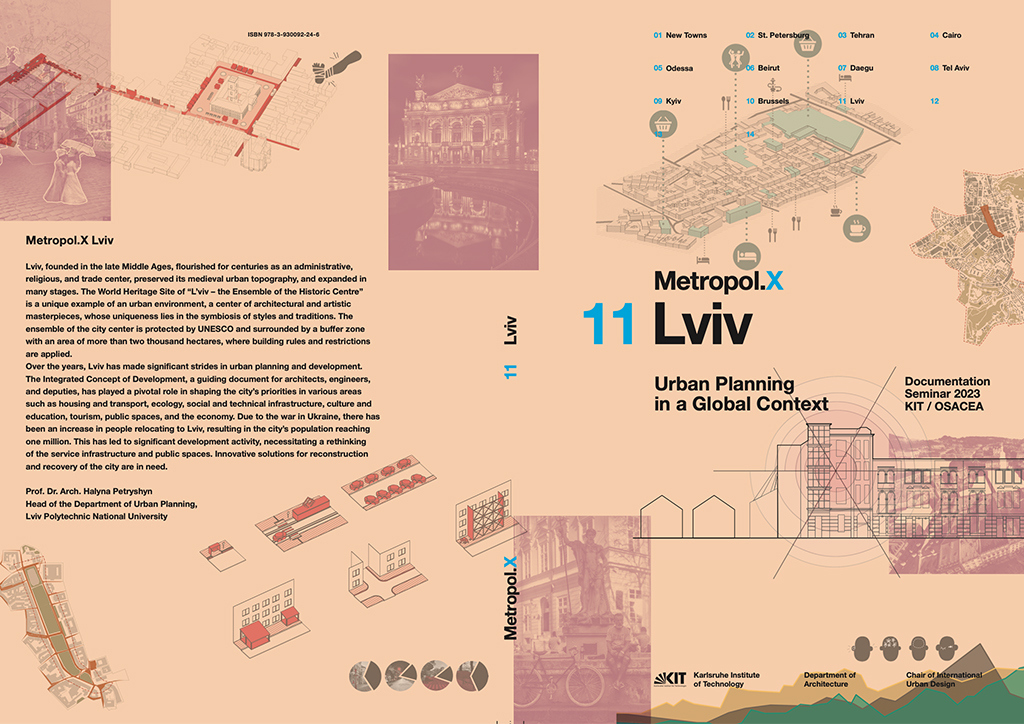
This publication is the result of a seminar, which took place in the "Remote Lab of Urban Planning", elaborated by students of the Odessa State Academy of Civil Engineering and Architecture. It focuses on different facets of Lviv, Ukraine, in times of crisis. Now available at our chair during opening hours!
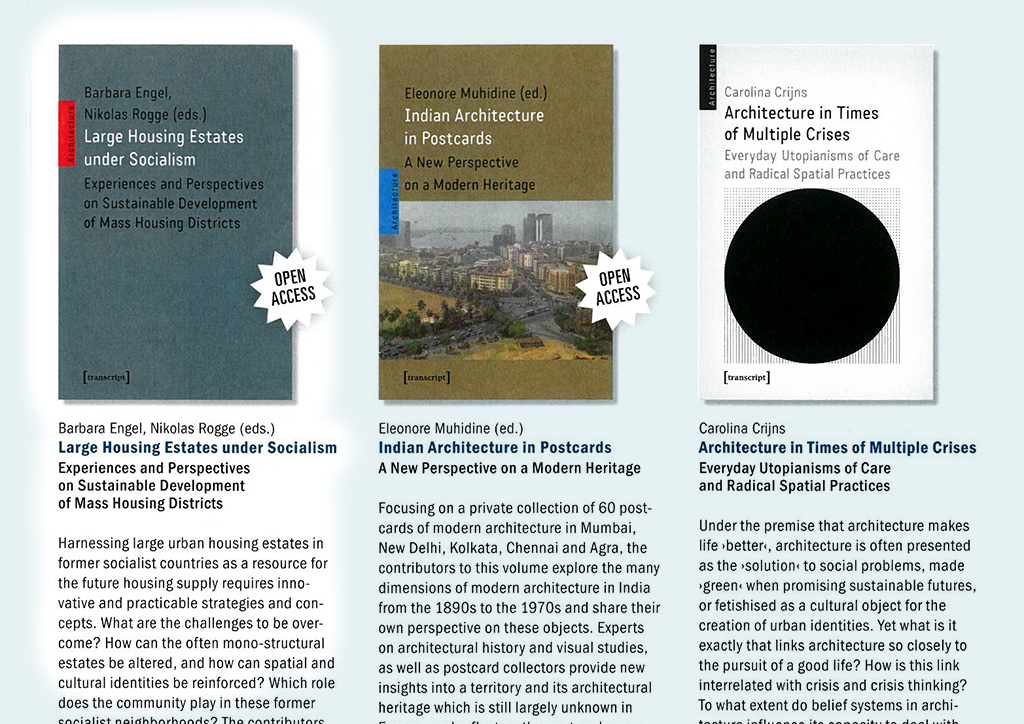
The book "Large Housing Estates under Socialism" by Barbara Engel and Nikolas Rogge is now available via open access. Harnessing large urban housing estates in former socialist countries as a resource for the future housing supply requires innovative and practicable strategies and concepts. The contributors present experiences and perspectives from different disciplines on sustainable development of mass housing districts, both in academia and practice.
Link_more
The booklet is the result of a seminar, which took place in the "Remote Lab of Urban Planning", elaborated by students of the Odessa State Academy of Civil Engineering and Architecture. It focuses on different facets of the Ukrainian capital in times of crisis. Now available at our chair during opening hours!
